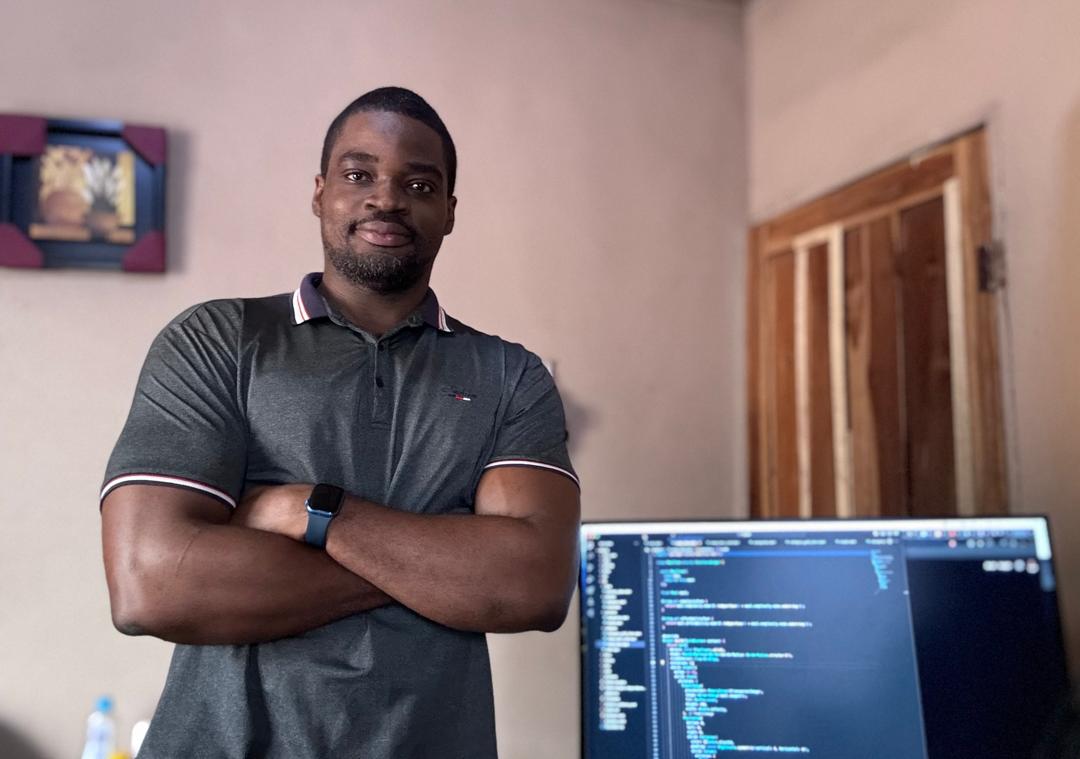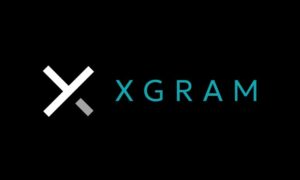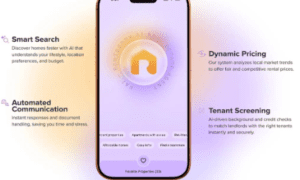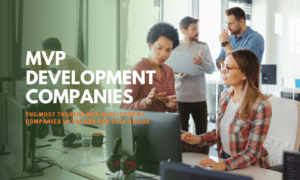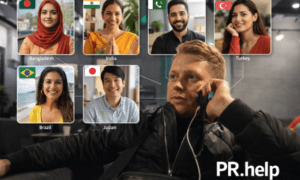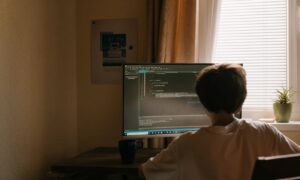Staying ahead of the curve can be one of the most challenging tasks in today’s mobile technology industry, which has been evolving quite rapidly nowadays and requires the full involvement of developers and businesses. The growing importance of mobile apps is now inseparable from our daily activities, such as banking, entertainment, education, and shopping, and therefore, the development of innovative and user-friendly applications has never been so high. According to Statista, almost 257 billion worldwide app downloads were recorded in 2023, and about 16 billion hours were spent on mobile apps.
Among the pioneering group of mobile software engineers from the bustling city of Lagos, Nigeria, came Chike Mgbemena, who, with his superior mobile app development expertise, not only met the demand for innovative and user-friendly applications but superseded it as well. In his time in the industry, he has been the driving force behind numerous apps that are absolutely leading the way in different sectors, such as fintech, edtech, and retail. His impressive portfolio boasts over 6 million downloads on the Google Play Store, which reveals the huge influences on his consumer engagement and satisfaction.
Chike’s ascension from a humble role to leadership is a confirmation of his authority in technologies like Kotlin, Java, Dart, Flutter, and the Android framework/SDK. His ability in developing novel ideas, which were at the core of enhancing the user experience and streamlining business operations, makes him a powerful figure in the tech industry.
In this interview, Chike is ready to shed light on his thoughts and share his experiences, demystifying the process of achieving success in mobile development. His story and advice to every interested person in the mobile app world will certainly enlighten and motivate them. This is why we’ve decided to talk to him today—to bring you the smart, innovative ideas of a leader who is shaping the future of mobile applications.
Chike, thank you for joining us today. To start, can you tell us what inspired you to begin your work in mobile app development?
More precisely, my lifelong fascination with the never-ending possibilities brought by the use of technology to transform people’s lives and businesses is what has been pushing me. More so, mobile applications seem to be a convenient method of creating solutions that can be accessed over long distances by a larger number of people, and obviously, this can have a big effect on daily life. I personally experienced the difficulties related to the use of certain apps. Those apps provided me with some pain points, such as poor user interfaces, slow performance, and a lack of intuitiveness. These issues pushed me to design a mobile app that not just addresses these challenges but also provides the user with a very good experience. Also, the quick development of mobile technology gave me the chance to come up with the latest product that is inventive and top-of-the-line. I was willing to take advantage of the new technologies, such as Kotlin, and advanced UI frameworks like Compose. My objective was to solve those ordinary troubles and, consequently, facilitate the smoothness and effectiveness of the user experience.
Reflecting on your journey and accomplishments, who has been a major inspiration in your career, and how have they influenced your work?
Throughout my career, I have had the honour of being guided by my mentors and colleagues. Their leadership, proficiency, and technological enthusiasm were the main drivers of my thinking. Thus, they influenced my decisions to be an effective problem solver and an entirely innovative mobile app maker. They taught me the significance of paying close attention to detail, incorporating the end-user into the design process, and the need to be ahead in technology. They have been really good to me, and that is why I value their contributions in the direction of my career and constantly exceed their expectations.
Your projects have achieved impressive results, like over 6 million collective downloads. What unique characteristics or attributes of your projects or services are you most proud of?
Continuous improvements and innovations are among the standout features of the projects I contributed to. For example, my development process usually involves periodic updates and feature additions based on user inputs and technological upgrades. This ensures that these projects are technologically up-to-date and adapt to changes in user preferences. I usually pay a lot of attention to user-centric design and performance optimization and seek to provide users with seamless experiences. This dedication to quality is evidenced by the huge number of downloads and positive user comments for my apps. Nonetheless, collaborating with talented software engineers, UI/UX designers, and product managers on these projects has been instrumental in achieving such impressive results.
You’ve made significant contributions to the companies you’ve worked for. For example, you were a key member of the Carbon team that developed the most successful features in the company. Can you tell us more about your contributions and role in these companies?
As the lead Android software engineer at Carbon, I led the Android development of some features like the virtual card and a personalized Android keyboard for secure payments, which led to an increase in user transactions and app retention rates. I did not leave any stone unturned during my stay, and in fact, I was able to enhance the Continuous Integration pipeline by including code quality checks and unit tests, thus reducing production bugs drastically.
At Snappy Shopper UK, where I was the senior Android software engineer, I designed novel product search and real-time order tracking features, which significantly increased user engagement and satisfaction. My endeavours, in terms of critical bug fixes and performance optimization, resulted in a marked decrease in crash rates and increased app responsiveness. Additionally, I spearheaded the migration of the codebase to modern dependency injection frameworks, enhancing its maintainability and scalability. I also played a key role in developing a sophisticated menu UI interface and crafting the intricate business logic to support it.
Besides, my leadership and technical guidance have facilitated innovation, improved app performance, and led developers to success.
Also, as someone who previously worked at Zone Payment Network Ltd. (formerly AppZone Group), your main responsibility was to develop a full-fledged native mobile banking app. So, tell us the steps you took to bring about the way this mobile app was designed.
Yes, I can. When I worked at Zone, my main responsibility was to develop a full-fledged native mobile banking app that would truly wow the users. In addition to the commonly provided online banking features, our app also had account management, QR payments, and money transfer features that were indispensable. As a result, I was tasked with devising a seamless and secure user experience, which would essentially include real-time subscription alerts, automatic balance updates, and robust security measures. Such an approach enhanced the efficiency of financial services and left more people satisfied and ready to use the tools. For example, the First City Monument Bank (FCMB) mobile banking app, which was an entirely new project I built, has hit more than 1 million downloads on the Google Play Store, which tells us about its widespread popularity and the quality of the services it provides. My work at Zone set a new benchmark for mobile banking platforms, which have proper functioning and bring customers an enjoyable UX. Those things empower users to manage their finances more efficiently, resulting in more financial inclusion and literacy.
In addition to your numerous contributions to these companies, such as the creation of the FCMB mobile banking app, you have also left a mark in the field of mobile development by writing many technical articles and much more. What is the impact of these efforts?
These efforts have impacted many areas in different positive ways. For example, writing technical papers has let me disseminate information, good practices, and insights not just to a broader audience but also to other developers, thus enhancing their skills and helping them get acquainted with the latest trends in mobile development. Delivering talks at conferences has also helped me to reach and inspire a diverse group of professionals, fostering a community of innovation and collaboration. Again, the high-quality mobile applications that I helped develop have been the direct cause of the improvement in user experiences and operational efficiencies in many fields. These applications let users manage their finances easily, access educational resources quickly, and engage in retail transactions seamlessly. Overall, these contributions have helped advance the mobile development field, promoting growth, education, and the adoption of cutting-edge technologies.
With your extensive experience in mobile app development, what distinguishes you from your competitors?
Several factors give me the edge in the mobile app field. First, my experience and profound technical expertise in mobile app development, especially in Kotlin, Java, Dart, Flutter, Android framework/SDK, and the different tools, allow me to build resilient, scalable, and high-performance mobile applications. My leadership roles, like those at Carbon, show that I can lead and motivate development teams. I have trained junior software engineers, established coding standards, and set a culture of excellence, contributing to a rise in the efficiency of the team and a shorter feature release cycle. Furthermore, my skills in interacting with customers and understanding their demands also played a significant role in having successful projects. Again, my extensive experience in mobile app development, which is distinguished by my effective collaboration with stakeholders such as UI/UX designers, backend engineers, and product managers, ensures that all aspects of the projects are aligned, leading to cohesive and high-quality products. Hence, my contributions resulted in tangible business outcomes such as a 50% drop in crash rates, a 40% rise in user engagement, and a 30% increase in customer satisfaction. The successful execution of these projects shows my ability to drive business growth and user loyalty by implementing high-impact solutions.
Looking back, what obstacles did you face in your mobile development journey, and how did you surmount them?
I had many challenges, such as dealing with technical debt and refactoring legacy code to improve performance, balancing project demands with limited resources, maintaining a consistent level of performance across different devices, protecting applications with robust cybersecurity measures, and keeping up with rapidly evolving technologies. Additionally, I had to make sure that the applications were highly efficient and responsive through meticulous optimization, maintaining regular updates, coordinating with cross-functional teams in an effective way, and remaining a step ahead in the market by continuously introducing new, innovative, and different features.
To overcome these challenges, I prioritized refactoring the previous codes when necessary, implemented efficient project management strategies, ran a very tough test, installed security protocols, worked closely with all stakeholders, involved myself in constant learning, utilized profiling and optimization techniques, developed a robust CI/CD pipeline, and fostered clear communication and collaboration within cross-functional teams. I concentrated on adding value and ensuring high quality at all times to keep up with competitors.
Looking ahead, what do you see as the biggest challenges in mobile app development today?
The biggest challenges include ensuring security and privacy, managing fragmentation across different devices and operating systems, promoting user retention in a very competitive market, increasing performance while improving rich features, and effectively integrating the use of new technologies such as AI, AR/VR, and IoT. In light of this, only mobile app developers who are ready to innovate, secure their systems, perform optimization, and use the latest technologies will constantly succeed and prosper.
As someone who has navigated many challenges and achieved considerable success, what advice do you have for upcoming developers?
The best advice that I can give to the younger generation is to learn all the time. The tech industry changes quickly, so being abreast of the latest trends, tools, and technologies is important. Focus on mastering the fundamentals, and then you will be able to adapt to new developments much more easily. Always prioritize understanding user needs and delivering a seamless user experience. Seek out challenging projects, as they are the best way to step forward in your career. Finally, look for mentors and collaborate with your colleagues to share knowledge and gain different perspectives. Hence, networking and continuous learning are key to success in this field.

